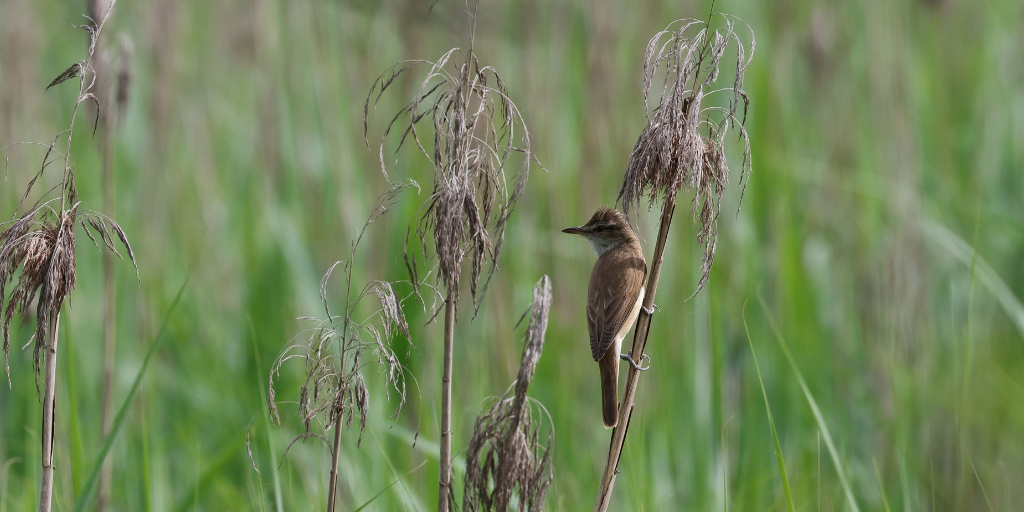Environmental groups slate EU plans to weaken nature safeguards in the Western Balkans, Ukraine, Moldova and Georgia
The European Commission must revise ill-advised plans to undermine nature protection rules for renewable energy projects – including hydropower and biomass – under the Energy Community Treaty (1), 40 civil society organisations today underlined in a joint letter.
25 June 2024

Following changes to the EU Renewable Energy Directive last year that weakened environmental safeguards for renewables, the Commission is now recommending (2) that the Western Balkans, Ukraine, Moldova and Georgia follow suit, despite their already inadequate nature protection (3).
The Recommendation would, if agreed on, be adopted at the Energy Community Ministerial Council at the end of this year. Although non-binding, it is expected to be seized on by governments eager to circumvent EU laws they have not yet fully implemented.
The countries are home to global biodiversity hotspots and their mountain, river and lake, karst fields and coastline habitats harbour numerous endangered and endemic species. But they lack legal protection and are under constant threat.
The region has long been plagued by rampant hydropower development (4), but even solar and wind projects, although much-needed, are also starting to cause a public backlash due to poor siting, lack of public consultations and environmental assessments (5).
The new Directive aims to improve spatial planning through designation of renewables acceleration areas that prioritise built-up and brownfield locations and avoid protected ones.
But the Energy Community countries have protected as little as 4 per cent of their land, compared to 26 per cent in the EU (6). With such a low share, say the groups, instead of focusing on locations with low environmental impacts, the new Directive would ‘encourage their deployment almost everywhere in the Energy Community countries, including in highly sensitive locations, with very few safeguards.’
Most renewables in acceleration areas would be exempt from environmental impact assessments – often the only chance for the public to have a say on specific projects. As well as fomenting local opposition, this is inconsistent with the Environmental Impact Assessment Directive which is binding under the Energy Community Treaty.
The proposal ‘sends a completely inappropriate signal to the Western Balkans, Ukraine, Moldova and Georgia that nature protection and public consultations are no longer a priority when planning renewable energy’, according to the groups.
Pippa Gallop, Southeast Europe Energy Policy Officer at CEE Bankwatch Network – ‘These countries have already tried to speed up hydropower without adequate safeguards and public consultations, so we know how this story ends: with court cases, protests and blockades. But while hydropower is an ageing, climate-vulnerable technology, solar and wind expansion are crucial and we can’t afford to mess them up.’
‘Renewable energy development must succeed, but it must avoid damaging nature, and it must have public buy-in’, conclude the groups, asking the Commission to revise its proposal to avoid conflicts with environmental safeguards.
The joint letter can be found here.
Contact:
Pippa Gallop,
Southeast Europe Energy Policy Officer
CEE Bankwatch Network
pippa.gallop@bankwatch.org
+385 99 755 9787
Notes for editors:
- The Energy Community Treaty is an international organisation which brings together the European Union and its neighbours to create a pan-European energy market. It was founded by the Treaty establishing the Energy Community signed in October 2005 in Athens, Greece, in force since July 2006. Its key objective is to extend the EU internal energy market rules and principles to countries in Southeast Europe, the Black Sea region and beyond on the basis of a legally binding framework. The current Contracting Parties are Albania, Bosnia and Herzegovina, Georgia, Kosovo, Moldova, Montenegro, North Macedonia, Serbia and Ukraine.
- See draft Ministerial Council Recommendation on accelerating the deployment of renewable energy projects and implementing the energy efficiency first principle.
- The European Commission regularly exhorts the countries to improve nature protection and uphold EU standards in its annual Enlargement package country reports.
- For more on hydropower, see for example https://bankwatch.org/project/rivers, https://www.balkanrivers.net/en.
- For examples, see here and here.
- Area of land protected by law: e.g. 4 per cent of land in Bosnia and Herzegovina, 8 per cent in Serbia and 11 per cent in Georgia, compared to 26 per cent in the EU.
Never miss an update
We expose the risks of international public finance and bring critical updates from the ground – straight to your inbox.
